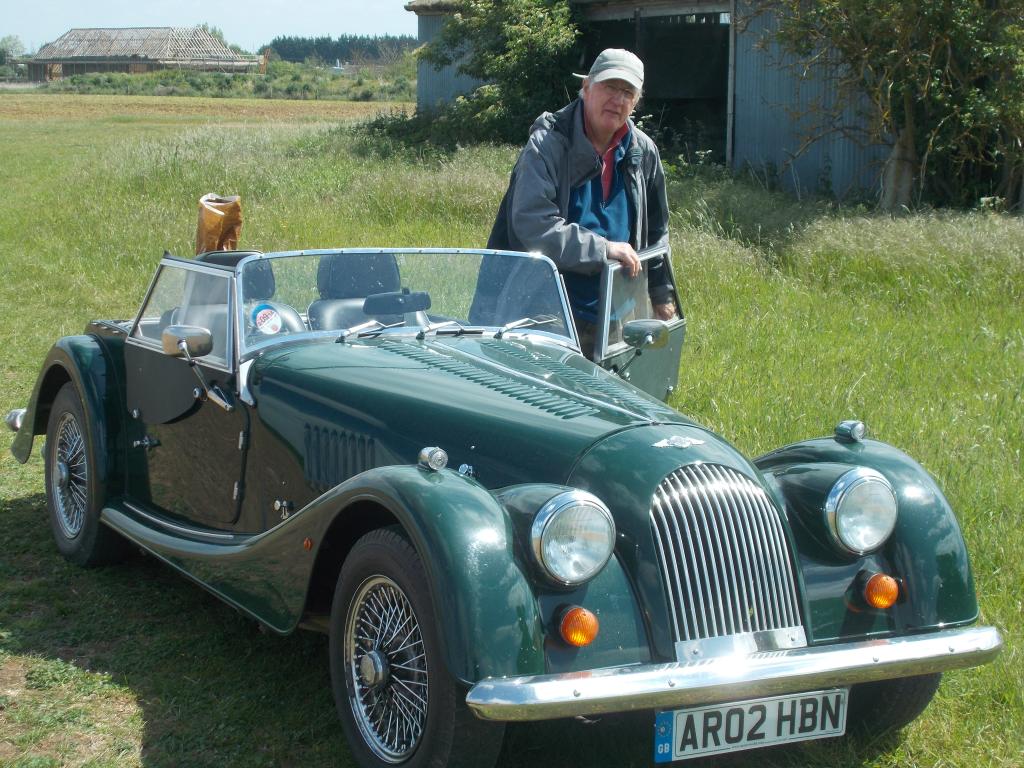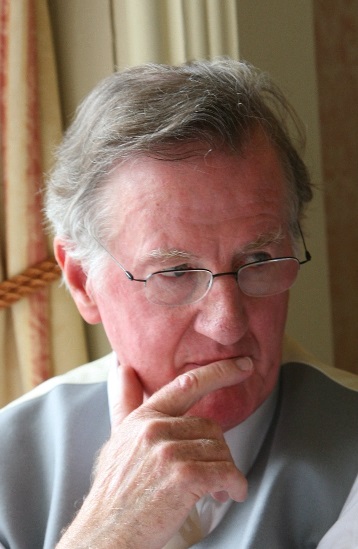Sir Clive Elliott - obituary


Obituary: Sir Clive Elliott, Bt, PhD, 1945-2018
by John Cooper, May 2018
Clive Elliott passed away on 18 April at Blue Barn, his country home in Oxfordshire, United Kingdom following a six-month battle with cancer.
Sir Clive Christopher Hugh Elliott, Fourth Baronet of Limsfield, Surrey, inherited the title on the passing of his father, Sir Hugh Elliott, in 1989. Clive was born in then Tanganyika in 1945 but received his education in the UK, from where he came to South Africa in 1968 to take up the opportunity to study the Cape Weaver Ploceus capensis at a young FitzPatrick Institute. His thesis work was supervised by the late Gerry Broekhuysen of UCT’s then Department of Zoology. On graduating in 1973, Clive became the Fitztitute’s third PhD, after Roy Siegfried (1969) and Mike Jarvis (1971).
1973 was also the year I joined the Fitz, having moved to Cape Town in late 1970 from then Rhodesia to study African Penguins Spheniscus demersus with the SANCCOB Foundation. Clive was the first ornithologist I befriended in Cape Town and he was helpful in a number of ways when I lived on Dassen Island studying its penguins and other seabirds in 1971 and 1972. He arranged and led several weekend visits of groups of amateur bird ringers to the island to help with flipper banding penguins – and to bring much welcomed company to break my isolated life. His Rosebank home also offered a sofa near the university on my rare visits to the mainland over an 18-month island sojourn.
In 1972 Clive became the first Ringing Officer for the newly created National Bird Ringing Unit, known, of course as NUBRA, which later morphed into SAFRING. While on the island it was exciting (in a pre-digital age) to receive carbons of typed recovery notices, signalling that a penguin I had banded had turned up elsewhere. It became apparent that whereas the adults did not venture much at all outside Western Cape waters, the birds banded as chicks went as far as southern Namibia (then still South West Africa) and the Eastern Cape while still in their first year as juveniles.
Once I left Dassen in late 1972 and had moved myself and my island cat into a flat in Kenilworth I became involved bird ringing shorebirds with the Western Cape Wader Study Group, a small bunch of mainly amateur bird ringers, which also included Clive. Long nights then ensued, driving in the evening to Langebaan Lagoon (before the West Coast Road was built with half the journey on loose sandy roads) to set mist nets for Curlew Sandpipers Calidris ferruginea. Returns to Cape Town came in the wee, pre-dawn hours (depending on the timing of the high tide at the birds’ main roost). Travelling in the back of Clive’s Peugeot 404 bakkie was not very comfortable, wedged among wooden ringing boxes and metal poles but we were young and I managed to doze a little. Clive, who had definite liberal views at odds with some of his more conservative colleagues, had changed his red MG sports car for the lime-green Peugeot, known for their reliability on Africa’s often bad roads. This was specifically so that if “the shit hit the fan” and the country descended into political chaos he could flee for the border. Fortunately this did not need to happen (the border to the rest of Africa is a long way from Cape Town) although it seems certain that, at the time, he, like many other students and staff at UCT - deemed by many in the country as a hotbed of communism - were being monitored by the security police.
Clive and his partner, Marie-Thérèse (‘M-T’) Rüttimann left Cape Town and South Africa to work on Red-headed Quelea Quelea quelea for the Food and Agriculture Organization of the United Nations (FAO) in1975, first in West Africa (Chad, where they married) and then in the east (Tanzania and Kenya). At the end of the 1980s Clive, M-T (I think I was the first to coin the abbreviation which has stuck over the years) and their two sons moved to Rome and the FAO Headquarters.
After a long gap I got back in touch with Clive and M-T in the late 1990s when I was setting up BirdLife International’s Seabird Conservation Programme and visiting the FAO in Rome to lobby for the reduction of seabird bycatch in longline fisheries. On one visit I stayed with them in their farm house home outside the city; early-morning runs being disturbed by enthusiastic Italians shooting at sparrows among the pig sties in an otherwise bucolic setting! I remember that visits to Clive’s FAO office had to avoid midday when he would set up a hammock, lock his door and take a short siesta, a habit picked up in tropical Africa.
On retiring in 2006 they moved back to the UK to the Elliott family home in Oxford, later moving to South Leigh in the Oxfordshire countryside. Fortuitously, South Leigh (more a collection of houses along one side of a country lane than a village) is within easy cycling distance of Witney where I spent three northern summers over 2014-2016 and so we could be re-acquainted once again. Together we went checking Clive’s Tree Sparrow Passer montanus nest boxes on nearby farms in Oxfordshire once a week on Wednesdays, enjoying the English countryside in his racing-green Morgan sports car with the top down, and reminiscing about the Fitztitute and its personalities in the early 1970s. My main job was to refill the supplementary bird feeders with seed, and try to avoid putting my hand into the boxes occupied by wasps rather than sparrows, as Clive regularly attempted to persuade me to do. Post-excursion lunches prepared by M-T taken in the Blue Barn’s conservatory were also enjoyed as was a splendid day out cruising on the River Isis to celebrate Clive’s 70th birthday along with his family and friends.
Clive is survived by Marie-Thérèse, their sons Ivo (who becomes the Fifth Baronet) and Nico and four grandchildren. He received a humanist cremation with his family giving readings. Donations in his memory may be made to Médecins Sans Frontières and Crisis (crisis.org.uk). Clive was a good friend and colleague, and a gentleman with a patrician air of an old school. I shall miss him.
